Jab plans in place as vaccines arrive
Nursing homes put in place urgent plans for COVID-19 immunisation injections from next week as first doses of Pfizer vaccine land.
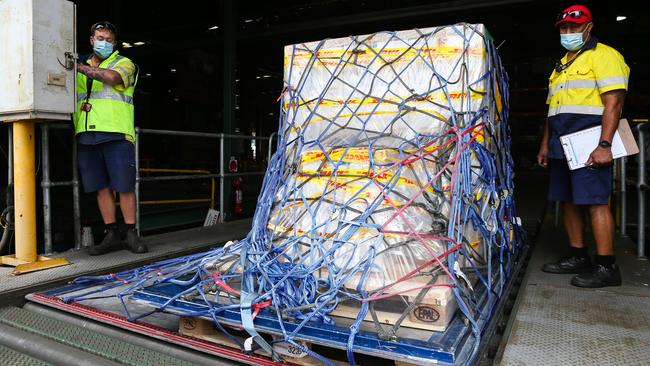
Nursing homes are putting in place urgent plans to begin administering COVID-19 immunisation injections from next week after the first doses of the Pfizer vaccines arrived in the country.
The aged-care sector has begun the process of gaining consent from their elderly residents to begin vaccinations, with training still under way for a specialised workforce who will work directly in nursing homes.
The first 142,000 doses of the Pfizer/BioNTech vaccine landed in Sydney just after midday on Monday and will now be quality tested by the Therapeutic Goods Administration.
Priority will be given to aged-care facilities, with 250 homes receiving 30,000 doses, and hotel quarantine, with 50,000 units allocated for those workers.
A further 60,000 doses are set aside for second injections and as a precautionary measure in case there is a break in the supply chain from the European Union.
The EU’s ambassador to Australia, Michael Pulch, last week insisted new rules restricting the export of vaccines from the bloc would not impact rollout plans in Australia.
Health Minister Greg Hunt said the arrival of the first vaccine doses was an “important milestone”, and he confirmed he still expected four million Australians to have received their first jabs by early April.
“We remain on track on the latest advice for all of the milestones which we’ve set,” he said.
He added it was up to individual states to decide what groups were given the highest priority.
“It’s a matter for the states, but they have indicated — and we generally support it — that the greatest immediate risk is the border quarantine process,” he said.
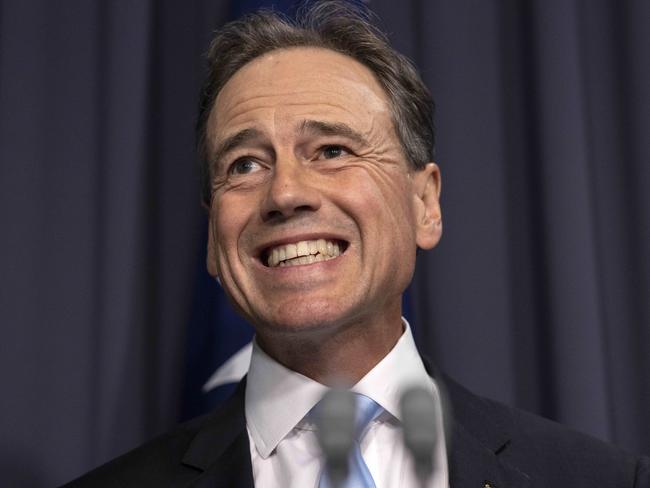
“They’ll make sure the balance is focused on the greatest risk, and I think that’s appropriate.”
Some epidemiologists, however, have questioned whether the goal of vaccinating all adults by October is possible.
Mark Hanley, a researcher at UNSW’s Centre for Big Data Research in Health, has authored a study that found 200,000 doses would have to be administered daily to reach the government’s target — an immense logistical challenge. “The longer we are unvaccinated, the more we are at risk of these very disruptive lockdowns such as the one happening in Melbourne,” Dr Hanly said. “The other thing is the sooner more people vaccinated, there is less risk of the virus mutating.”
Adrian Esterman, a former World Health Organisation staffer who is now a epidemiologist at the University of South Australia, said he would not be surprised if the immunisation program was delayed beyond October,
“Obviously, the Pfizer (rollout) is going to be much slower because of the need for the coldchain storage, whereas AstraZeneca and Novavax will be much easier because they are administered like an ordinary vaccine,” he said.
Others, like La Trobe University public health academic Hassan Vally, said the government appeared well-prepared for the rollout of immunisations. “One of the advantages of this slight delay (in approving the vaccine) is that extra time has been put towards dealing with logistical and practical issues,” Dr Vally said.
The commonwealth has already moved to provide information and consent forms to nursing homes while the TGA’s final batch testing processes are under way. Those tests are expected to take up to two days — after which thermal boxes containing vials of the vaccine will be distributed directly to aged-care homes.
Patricia Sparrow, the chief executive of Aged and Community Services Australia, said consent was an important issue.
“We will be working closely with the government to maximise the rollout and protect older people,” Ms Sparrow said.
Labos health spokesman Mark Butler said the government had previously said Australia would be at the front of the vaccination queue, but had fallen behind on delivering vaccines.
“We are now in the second half of February and still not a single Australian has received a single dose of COVID-19 vaccine,” Mr Butler said on Monday. “Around the world figures indicate that more than 170 million people have already received their vaccine.”
Dr Vally said Australia was in a different situation to Britain, which had accelerated its vaccination program and was using mass immunisation facilities including churches in a scramble to administer doses to the public.
Almost a quarter of the population have received the first shot or have been offered it, figures released by the government show. The country has reported more than 117,000 virus-related deaths.
ADDITIONAL REPORTING: STEPHEN LUNN

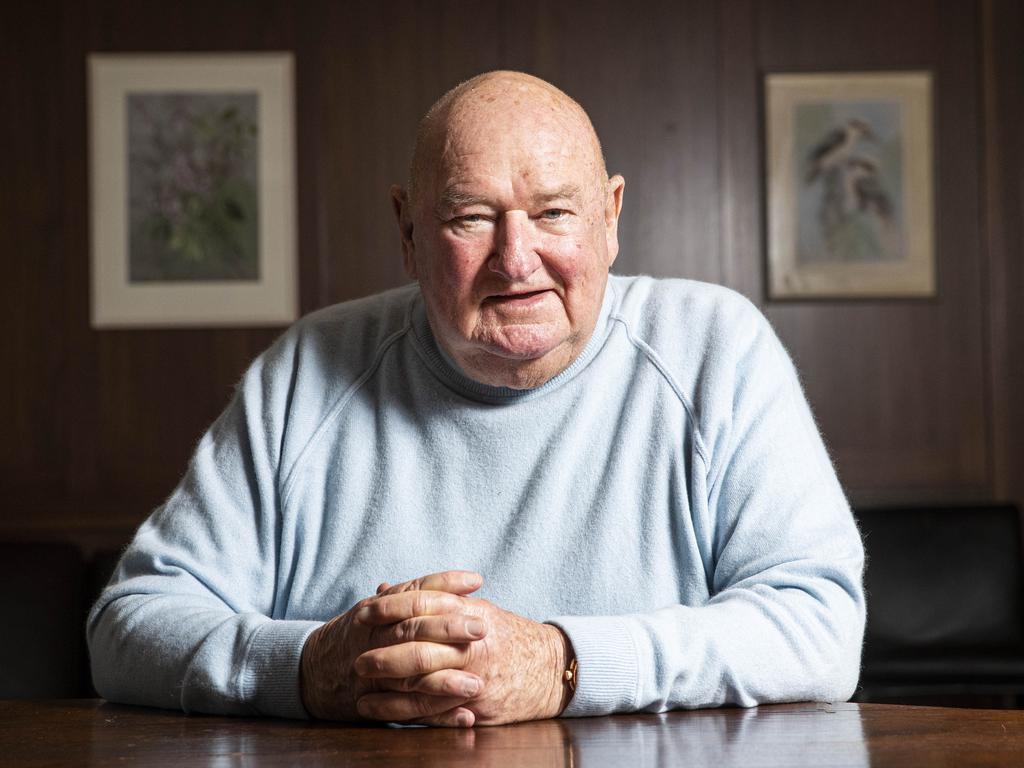
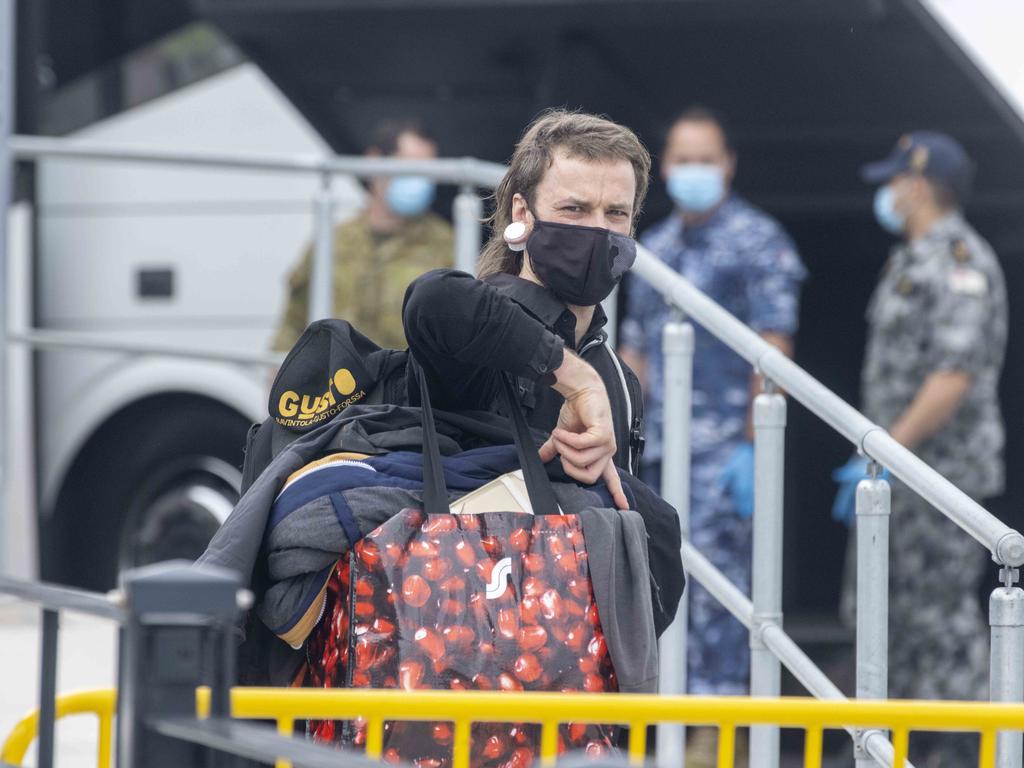
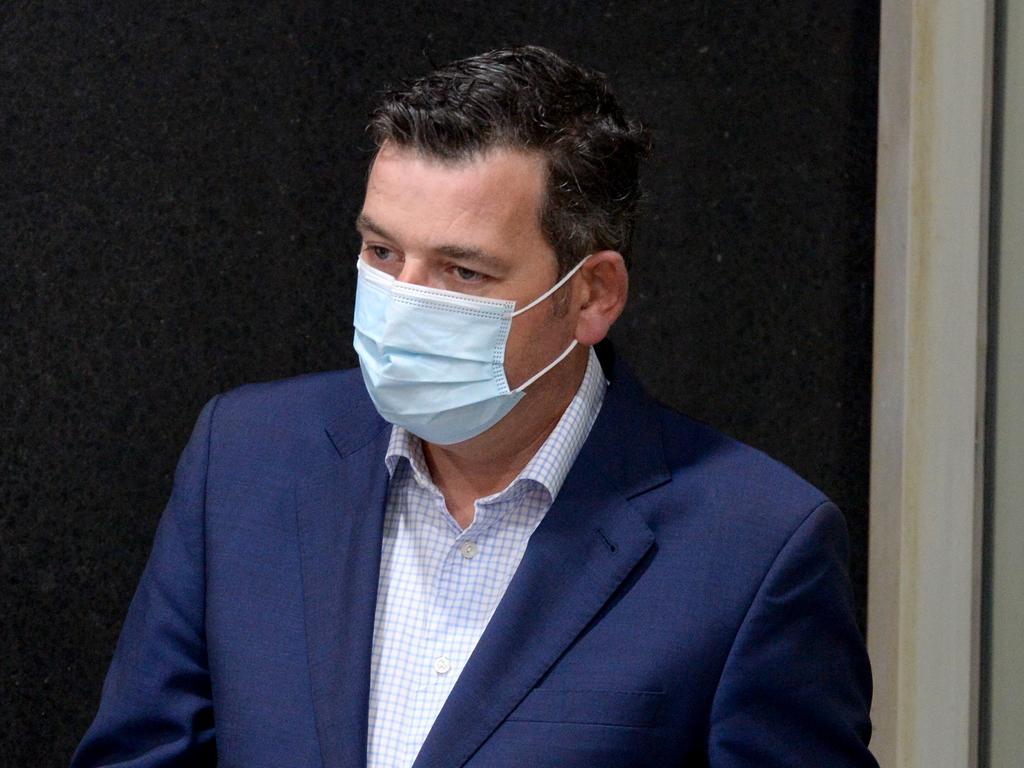
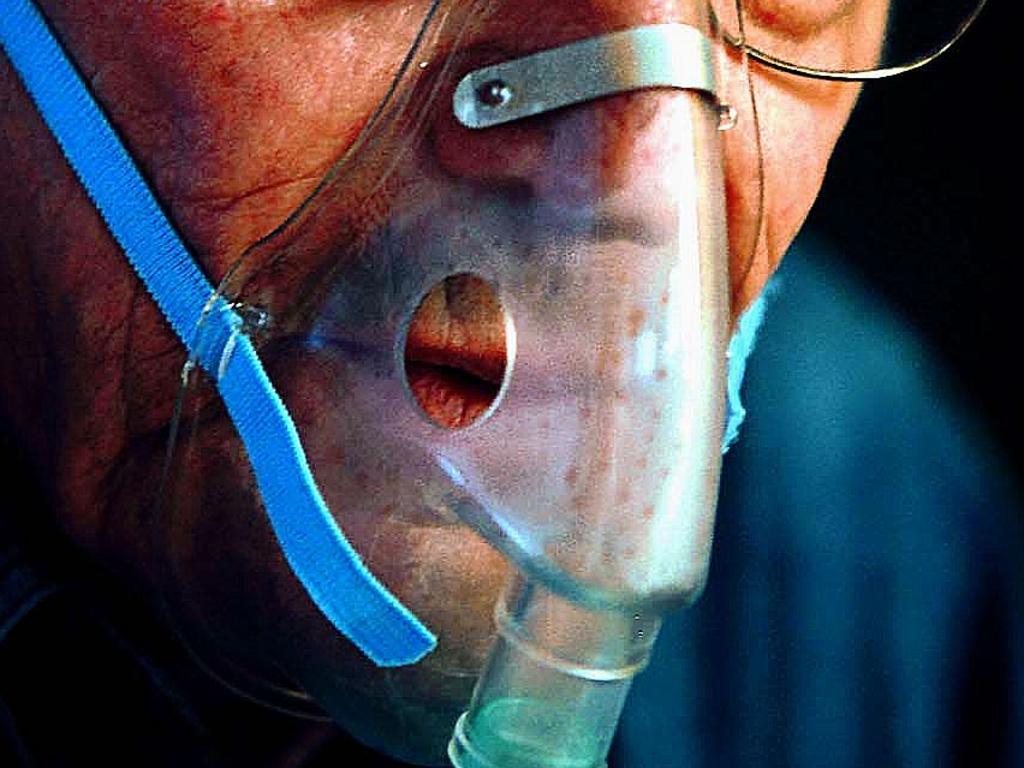


To join the conversation, please log in. Don't have an account? Register
Join the conversation, you are commenting as Logout